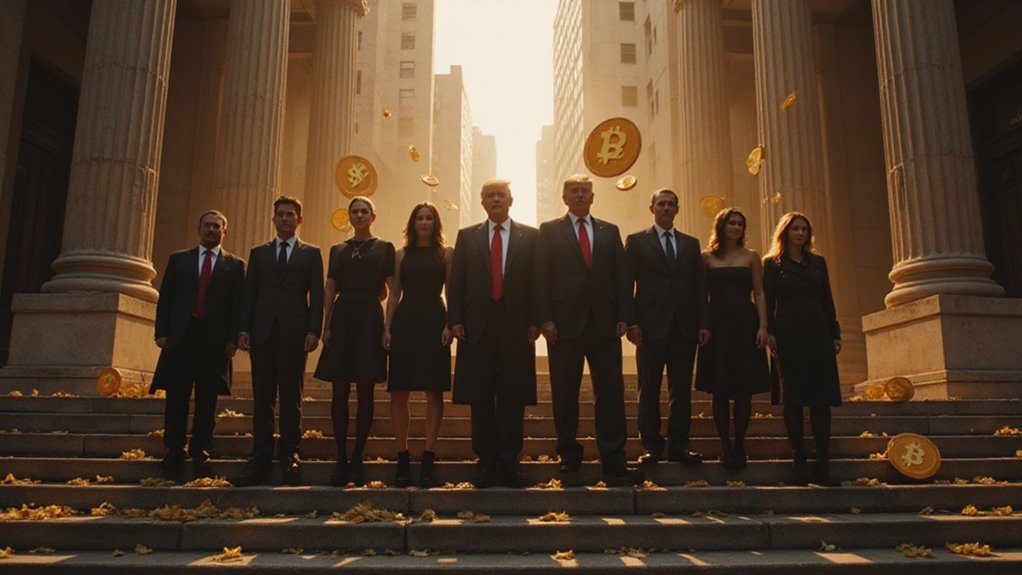While the cryptocurrency landscape has long operated on the periphery of mainstream political discourse, Senator JD Vance’s recent keynote address at the Bitcoin 2025 Conference in Las Vegas signals a remarkable shift in the Republican establishment’s approach to digital assets.
The Ohio Senator emphasized Bitcoin’s strategic importance in an era where digital finance increasingly intersects with geopolitical considerations—a notion that would have seemed far-fetched in political circles merely five years ago.
Vance articulated a vision where American leadership in cryptocurrency innovation becomes not merely an economic concern but a matter of national security.
American cryptocurrency dominance isn’t just economic policy—it’s a strategic imperative for national security in the digital age.
With sovereign nations now contemplating Bitcoin acquisition for their reserves (one might call it the ultimate FOMO), the regulatory landscape appears poised for significant restructuring.
The Trump administration’s evolving stance represents a pragmatic acknowledgment of Bitcoin’s ascendance rather than ideological conversion.
The Senator urged the Bitcoin community to maintain political engagement beyond the current election cycle, suggesting that policy victories remain tenuous without sustained advocacy.
This call for continued vigilance reflects the reality that regulatory frameworks—once established—tend to calcify, potentially stifling innovation should the community’s attention waver.
Global competition in the digital asset space has evidently influenced this recalibration of American policy.
As nations like India reconsider their restrictive approaches in response to shifting U.S. positions, a domino effect of regulatory liberalization appears increasingly plausible.
The macroeconomic implications of such a shift cannot be overstated.
These developments come as crypto investors continue to watch the FTX creditor payout schedule, with $5.4 billion set for distribution beginning May 30, 2025.
Perhaps most striking was Vance’s proposal for a strategic Bitcoin reserve—a concept that would have been dismissed as crypto-maximalist fantasy in previous administrations.
This suggestion underscores how thoroughly digital assets have penetrated economic policy considerations at the highest levels of government.
The cryptocurrency regulatory environment, once characterized by antagonism and skepticism, now appears to be entering a phase where institutional legitimacy and political support converge.
Whether this represents genuine ideological evolution or merely political opportunism remains, of course, the million-bitcoin question.









